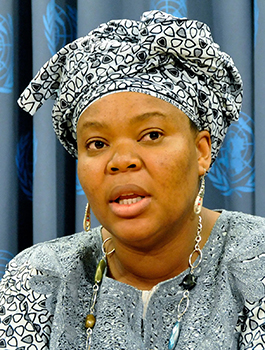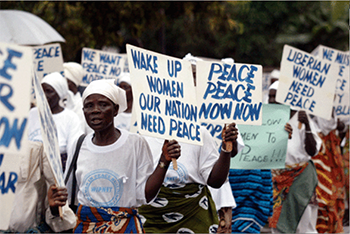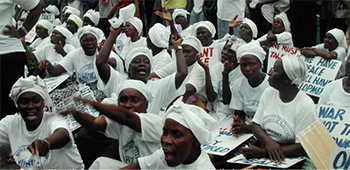From Our Archives
For earlier essays on this week's RCL texts, see Michael Fitzpatrick, Theology by Widows (2022); Debie Thomas, Disturbing the Peace (2019); Dan Clendenin, A Quest That Goes Nowhere (2016), Not Peace but Division: The Embarrassing Words of Jesus (2013), Believing Isn't Seeing: "None of Them Received What Had Been Promised” (2010), False Hopes, Bad Dreams, and Reckless Lies: Jeremiah Yesterday and Today (2007), and Reckless Lies (2004).
This Week's Essay
By Amy Frykholm, who writes the lectionary essay every week for JWJ.
Hebrews 12:1: "Let us run with perseverance the race that is set before us."
For Sunday August 17, 2025
Lectionary Readings (Revised Common Lectionary, Year C)
Psalm 80:1–2, 8–18 or Psalm 82
Hebrews 11:29–12:2
Luke 12:49–56
The name of Rahab in Hebrews 11:31 appears as an anomaly. It is a moment when the author of Hebrews is gathering up the great heroes of the faith, so that we can see the “great cloud of witnesses” (12:1). Leading up to 11:31, we read of Abraham and Moses, of Jacob and Joseph. The lineage of great men is recited. And then suddenly, out of nowhere, Rahab. After Rahab’s name appears, the author states there really isn’t time to speak of the rest of the heroes: of David, Samson and Samuel. Rahab has taken up the remainder of the space.
Rahab was not even an Israelite. Her name appears on no other list of heroes from the past. The only other woman named in the lineage is Sarah. Not Miriam, the sister of Moses. Not Deborah, the acclaimed judge and prophet. Not Judith, whose celebrated deeds saved her people. Just Rahab, standing there alone in the roll call.
Rahab was a Canaanite whose story is recounted in Joshua as part of the story of entering the Promised Land. Yet she already lived there, and her name is always associated with her disparaged occupation (prostitution) and a specious activity (treason). She was an outsider and an outlier. She stood against the authorities of her own time and place in hopes of something better for herself and her family.
When Leymah Gbowee heard the call, “Gather the women to pray for peace,” she was a single mother, fleeing domestic violence, sleeping on a cot in an NGO office in war-ravaged Liberia. All around her the parties vying for power raged in extreme violence. The president Charles Taylor would do anything to stay in power. Those who opposed him would do anything to topple the regime. Whole villages had been burned to the ground, their inhabitants killed. The capital city, Monrovia, where Gbowee lived, had been hollowed out as well, with little hope for an end to the fighting. More than 250,000 people were killed in Liberia's civil wars in the 20th century, and war raged into the 21st.
Gbowee witnessed the bloodshed first-hand. There had been a massacre inside her own church. She had fled to a refugee camp outside Liberia and saw no future for herself of any kind. But now she had returned, and nothing about her return seemed especially hopeful. One night, in the office, she heard a voice, “Gather the women to pray for peace.” In her memoir Mighty Be Our Powers, she writes, “I didn’t know where I was. Everything was dark. I couldn’t see a face, but I heard a voice, and it was talking to me — commanding me: ‘Gather the women to pray for peace!’” In the early morning hours of that day, she argued with the voice, “I drank too much. I fornicated! I was sleeping with a man who wasn’t my husband, who in fact was still legally married to someone else. If God were going to speak to someone in Liberia, it wouldn’t be me.”
 |
|
Leymah Gbowee, 2009.
|
But later that day, she told others about the voice, and together they gathered a small group of women — mostly Lutherans — to pray. Women from other churches eventually joined them. And then one day, a Muslim woman appeared in their midst. “Christian and Muslim women had never worked together, and certainly not for anything political. Asatu [the Muslim woman] was proposing an alliance no one had ever imagined before,” Gbowee writes.
The women worked together to spread the movement throughout Liberia. They excluded no one from the conversation. They went to mosques and churches, to markets and Friday prayers. “We gave all our sisters the same message: Liberian women, awake for peace!”
Years later, when the filmmaker Abigail Disney was making a film about these women (Pray the Devil Back to Hell, 2008), she was searching for footage of these early days of protest. There were no photos, no videos. No one cared in any way what they were doing or thought to record it. When Disney asked local photographers if they had footage, they said, “Why would we? They just looked pathetic.”
Slowly, the movement gained momentum, and international pressure on Taylor to make peace was also increasing. Gbowee’s network decided the time for more direct action had come. They sent messages through their networks to bring all the women together in front of the presidential palace. “In the past we were silent,” Gbowee told the crowd. “But after being killed, raped, dehumanized, infected with diseases, and watching our children and families destroyed, war has taught us that the future lies in saying no to violence and yes to peace! We will not relent until peace prevails!”
 |
|
Women of Liberia Mass Action for Peace.
|
The women staged a sit-in. They protested for weeks outside the presidential palace, demanding an unconditional cease-fire. They dressed in white. They came from everywhere. The president agreed to meet with them and tried to pay them off. They continued to protest. Finally, peace talks in neighboring Ghana were announced.
The women decided to continue their protests in Ghana, in order to remind those negotiating what the stakes were for peace. But Gbowee sensed that the talks were a sham. The warring parties were gathered in a hotel where the UN fed and sheltered them in five-star accommodations. They sat by the pool and sent military orders to their troops on the ground in Liberia. “The warlords were on vacation,” states Gbowee, “with the international community paying for it all.” Meanwhile, reports from Monrovia were of mass graves, more fighting, piles of bodies, widespread starvation. “Our prayers turned bitter,” Gbowee writes. She felt deceived by God.
Then one day, Gbowee knew what they had to do. They had to block the men — literally — from coming in and out of the conference room. Through direct physical confrontation, they had to force them to agree to the ceasefire. They sent a message to those inside: the delegates will be held hostage until a peace agreement is reached.
 |
|
The Women in White.
|
The guards came to arrest Gbowee. “I was so angry, I was out of my mind. ‘I will make it very easy for you to arrest me,'" she told the guards. "'I’m going to strip naked.’” She began to take off her clothes. Only later did she realize that she had “summoned up a traditional power. In Africa, it is a terrible curse to see a married or elderly woman deliberately bare herself.” Perhaps the story has a faint echo of Rahab — the unexpected woman, the scandalous action. But what is certain is that Gbowee’s actions broke open an ossified peace process, much like Jeremiah’s hammer breaking a rock to pieces (Jeremiah 23:29).
The Liberian war didn’t cease that day, but it was the beginning of the end. Within weeks, an agreement was signed. And it held. Charles Taylor went into exile, peacekeeping troops arrived on the ground in Monrovia, and within three years Liberia had elected its first female president, Ellen Johnson Sirleaf. In 2011 Gbowee, along with Sirleaf and Yemeni activist Tawakkol Karman, won the Nobel Peace Prize.
In reflection, I think this is why Rahab’s name makes the list in Hebrews, why she disrupts the familiar recitation: because faith sometimes looks like this — a desperate flinging of oneself at the impossible. A surrender to that inner voice that does not accept the status quo, no matter who you are or where you come from. This painful, endless work of liberation and peace is, in fact, the “race that is set before us” (Hebrews 12:1). “Don’t stop,” an old woman in a displaced person’s camp told Gbowee. “Don’t ever stop.”
Weekly Prayer
Pauli Murray (1910-1985)
Hope is a crushed stalk
Between clenched fingers
Hope is a bird’s wing
Broken by a stone.
Hope is a word in a tuneless ditty —
A word whispered with the wind,
A dream of forty acres and a mule,
A cabin of one’s own and a moment to rest,
A name and place for one’s children
And children’s children at last . . .
Hope is a song in a weary throat.
Give me a song of hope
And a world where I can sing it.
Give me a song of faith
And a people to believe in it.
Give me a song of kindliness
And a country where I can live it.
Give me a song of hope and love
And a brown girl’s heart to hear it.Anna Pauline "Pauli" Murray (1910-1985) was an American civil rights activist, women's rights activist, lawyer, Episcopal priest, and author. Drawn to the ministry, in 1977 Murray became the first black woman to be ordained as an Episcopal priest, and she was among the first group of women to become priests in that church. As a lawyer, Murray argued for civil rights and women's rights. In addition to her legal and advocacy work, Murray published two autobiographies and a volume of poetry. Her biography was recently removed from the U.S. Park Service’s website by the Trump Administration.
Amy Frykholm: amy@journeywithjesus.net
Image credits: (1) Britannica.com; (2) Participedia; and (3) The Nonviolence Project, University of Wisconsin-Madison.





